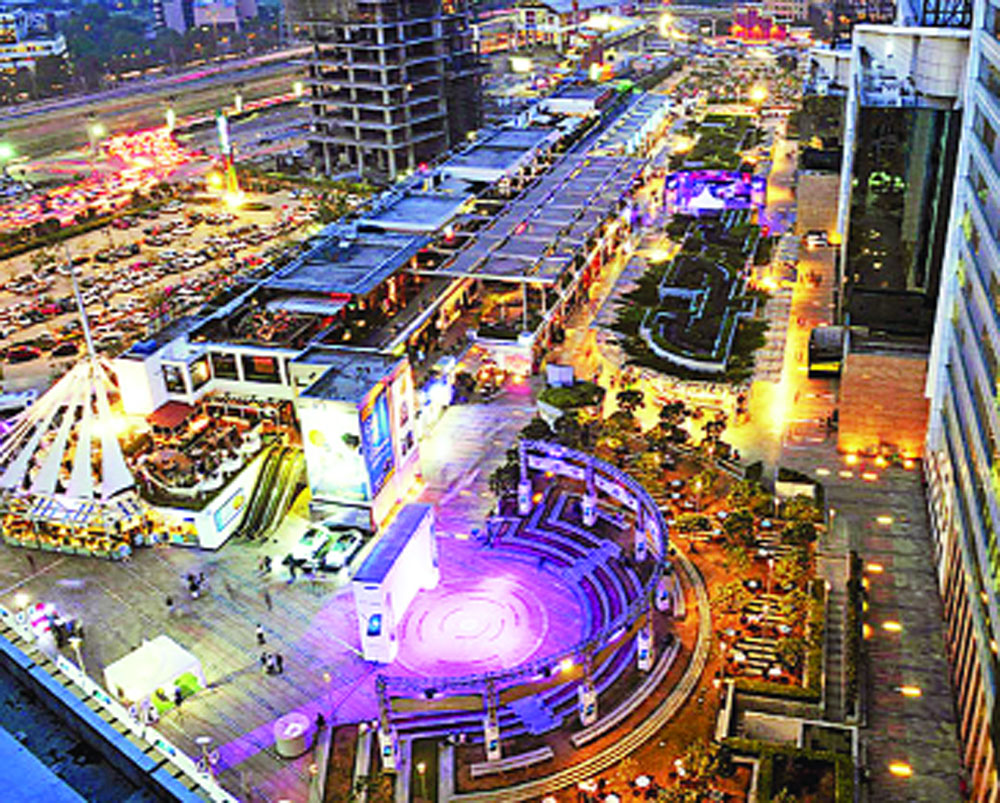A vibrant nightlife is an essential component of modern civilisation. Ayushi Sharma talks to world city experts and finds out what are the markers and how Delhi needs to strike a balance between regulation and freedom
This city never sleeps. Can this be the tagline of Delhi? Most of us women would vigorously shake their heads in the negative. For when it comes to nightlife, the first image that comes to mind is of safe-strolling the streets and bumping into urban sub-cultures. A mix of pubbing, dancing, music concerts and cultural soirees or what can be termed as a “happening” urban expression is one of the major reasons for tourists to visit a certain city.
But then all that Delhi or for that matter any of the Indian cities have on offer are two categories of recreational experientials. On one side of the spectrum are downmarket, shady and run-down bars, which a major chunk of the educated class and urban population steers clear of. On the other side are high-profile lounges, diners and cafes which welcome the middle to upper-class citizens but are naturally priced steeply.
Experts from all over the world, therefore, got together at Shangri-La to unravel the markers for a great nightlife and bring Delhi and our other cities up to the mark.
Lutz Leichsenring, spokesman and executive board member for the Berlin Club Commission, who focusses on the informal aspects of city life and has played a key role in legitimising the city’s underground movement, defines nightlife: “It can be defined as a space where like-minded people meet, communicate and interact socially. It’s basically a space which is diverse and inclusive.”
Lutz argues that if a city wishes to be advanced and modern, “you have to think how can you create a culture of vibrancy which has to do with diversity, focussing on art and music and also on the idea to be a better place where individuals can connect, interact and get together.”
He feels the idea of nightlife in India is definitely evolving and getting more diverse than it used to be. “I’m happy that Indian artists have started developing their own identities and no longer copy from what’s happening around the world. It’s a very positive development as it shapes the unique identity of who you are.” Lutz added.
He strongly feels that there’s a huge amount of competition between different parts of the world to become a global hotspot, inviting and attracting visitors with a vibe and breath. That comes purely from the cultural environment and people-bonding. Says Lutz, “The reason why people leave cities and move somewhere else is mostly driven by new pursuits of nightlife.”
Berlin is a place which people see as a safe haven, where you will be welcomed and accepted no matter what sexual orientation you have, what kind of music you like, how you dress or what you look like. “It’s really hard to compare the nightlife in Berlin and Delhi. There’s unquestionably more cultural vibrancy in the former because there’s much greater space which is accessible not just to a certain group but to every individual. Of course India has made headaway but still has to do a lot when it comes to be a site which is night friendly and accommodating.”
Lutz also shares some tips for Delhi’s nightlife makeover. “The first and foremost step towards making Delhi a nightfriendly city is to keep laws, rules and regulations easy-going and friendly. I think if you want to attract people for creating a vibrant nightlife, you have to also give them the right framework. If you have regulations which are offering you restrictions and boundaries only, then this is disappointing. Second, the idea of having longer opening hours creates a safer nightlife because people are not pressured to get drunk within a certain time. Third, you need to have enough accessible space where new talent can grow and evolve where a mix of local and global can gather to have a good time together.”
Hideyuki Yokoi, a rapper who is also a Hip-Hop activist, popularly known as Zeebra, was the Chairman of the Club Culture Conference (CCC). He has also played the main role in re-inspection of the Fu-Ei-Ho which is the National Law that prohibits late night business hours. Fu-Ei-Ho had strongly restricted Japanese night entertainment for over 25 years. He says, “If all the pubs and clubs would be in an enclosed space and not scattered all around the city, people wouldn’t face the hassle of going around places. It would just be one place where everything could be within reach. It would definitely be safer than any other place which is alienated from civilisation.”
Lutz adds, “There’s a need for right talent, people who have unconventional ideas and originality in their works and not those who follow someone’s footsteps.
Indians are definitely full of talent but where they lack is an accessible space for a good nightlife where people can feel safe and enjoy the after hours. Another thing is acceptance from the governmental side. It’s important to have rules and regulations which are a combination of strict as well as liberal.”


























